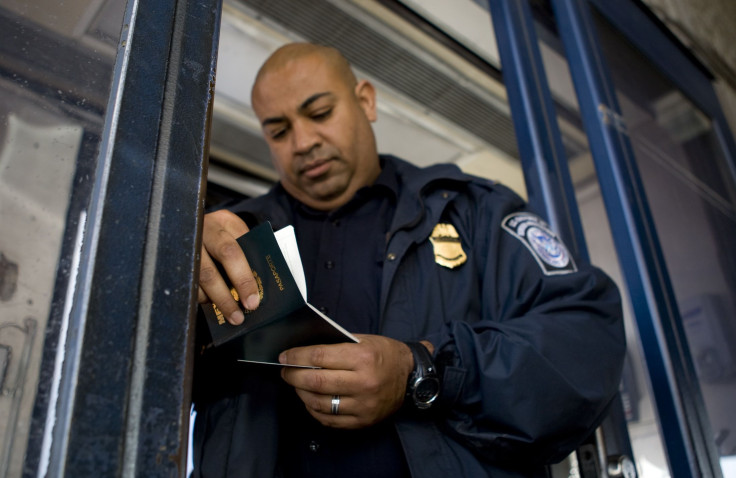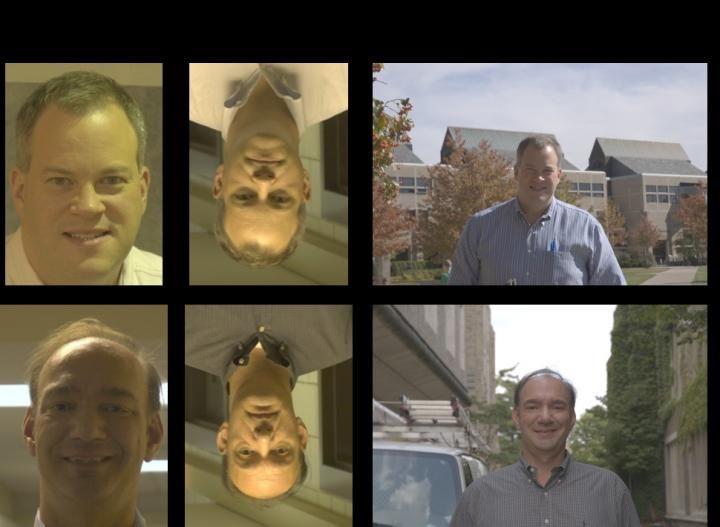FBI Agents, Forensic Experts Outperform Computer Algorithms On Facial Recognition Tests

The photo ID, whether a driver’s license or a passport, is the most prevalent form of "proof" around the world, so facial recognition skills are crucial to law enforcement. A new study pitted FBI agents and other forensic professionals against everyday people and computer algorithms to see whose facial recognition abilities were best. The trained professionals not only outperformed the guy in the street, they also did better than computers in a series of difficult face-matching tests.
Declaring the agents and officers true “experts,” the authors of the study added, “Notably, computationally fusing responses of multiple experts produced near-perfect performance.”
People are better than 'puters??
The May 2014 meeting of the Facial Identification Scientific Work Group, held at the FBI academy in Quantico, Va., was attended by forensic examiners from around the globe. Seizing this rare opportunity, the researchers, led by Dr. David White, a psychologist at The University of New South Wales in Australia, tested a group of 27 examiners against two separate groups. One group included attendees of the meeting who did not perform forensic facial examination as part of their job (though they worked as managers, technical experts, or administrators of biometric systems). The second group consisted of untrained university students.
By comparison, the 27 examiners were highly trained and worked for the FBI, police departments, and customs or border protection agencies in the United States and other countries.
For the experiment, all participants were given pairs of images and then asked whether the two photos were of the same person. For some of the tests, participants had two seconds, for other tests, 30 seconds, to decide. Images selected by the researchers were unusually challenging; one pair of images had been incorrectly decided by the computer algorithms 100 percent of the time.

What happened? Consistently, the professionals performed more accurately than the two groups of humans and they also outperformed the computer algorithms. “Expertise improved intuitive as well as considered judgements,” concluded the authors, who emphasized the fact that the examiners’ surpassed others on both the longer and shorter (two-second) tests. That said, when participants were given 30 seconds with the photo pairs, the differences in recognition ability between the three groups became most obvious.
“To the best of our knowledge, this is the first convincing demonstration of a professional group showing higher accuracy on face matching tasks,” wrote the authors. Importantly, they added that the trained examiners identified faces using analytical methods, “processes that differ qualitatively from those supporting memory for individual faces,” they wrote. “Mechanisms supporting unfamiliar face matching performance may not be entirely face-specific, but may instead reflect general image comparison abilities.”
To many of us, the test in this study may not sound too difficult. While most of us are very good at recognizing faces of the people we know — even in terrible photographs — past research has shown we make frequent mistakes when it comes to unfamiliar faces. In an era when poor quality photos from cell phones, CCTV, and automatic face recognition technology are used to identify suspects (and used as evidence), these results suggest our abiding faith in the power of image may not be entirely misplaced.
Source: White D, Phillips PJ, Hahn CA, Hill M, O’Toole AJ. Perceptual expertise in forensic facial image comparison. Proceedings of the Royal Society B. 2015.
Published by Medicaldaily.com



























